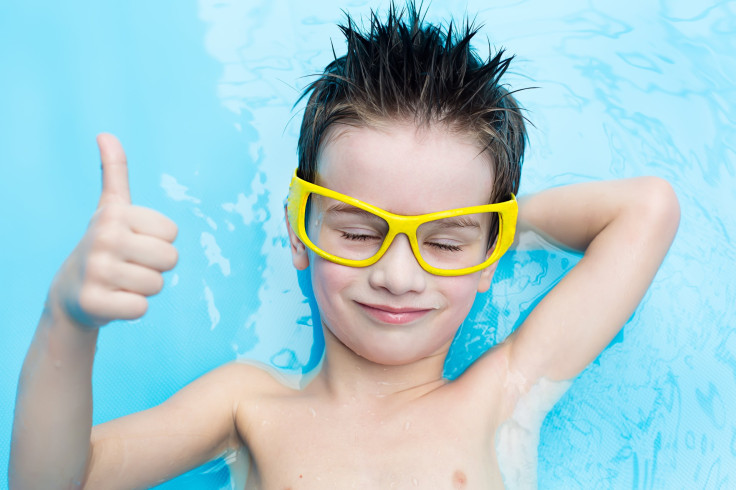When Pee Meets Pool: The Dangerous Chemicals That May Form When Urine Mixes With Chlorine

We think that only little kids pee and poop in public swimming pools, but apparently adults do too — and it may be far more dangerous than we think.
According to a recent survey, one in five Americans have admitted to peeing in a public swimming pool. The same survey found that 43 percent of Americans have skipped taking a shower before going for a swim, 11 percent have swam with a runny nose, and 8 percent have swam with an open cut.
This doesn’t sound encouraging. On top of that, a recent study out of the China Agricultural University and Purdue University found that urine mixed with chlorine could create dangerous chemicals that are harmful to human health. Uric acid in particular, which is a byproduct of urine, when combined with chlorine creates something called cyanogen chloride. This is a gas that could be harmful to the central nervous system, heart, and lungs when inhaled. According to the study, uric acid could be linked to 24 percent to 68 percent of this chemical byproduct in pools.
Another chemical called nitrogen trichloramine is also a byproduct of this union, which is a gas that has been linked to chronic health problems in swimmers.
It may not just be the urine in particular that could be harmful to swimmers’ health, but also the overall “changes in pool water chemistry” that occur in a pool that is used heavily. According to another study completed in 2011, the water quality in a chlorinated indoor pool “deteriorated” significantly after a national swimming competition, which was a period of intense use. The trichloramine levels doubled just after one day, but increased fourfold throughout the whole competition.
According to the World Health Organization, the chemicals that are found in pools are derived from three different sources: the source water itself, the bather (dirt, urine, sweat, lotions), and whatever the pool’s management puts into the water (disinfectants, pH correction chemicals). The WHO lists trihalomethanes, haloacetic acids, chlorate, and nitrogen trichloride as “disinfection by-products.” Swimmers typically are exposed to such chemicals by either inhaling the gases, absorbing them through their skin or swallowing water.
“No matter how easy it is to pee anonymously in the pool, swimmers should avoid doing so and take their children on frequent bathroom breaks," Dr. Chris Wiant, chair of the Water Quality & Health Council, said. "Pool operators should also monitor and maintain proper pool water chemistry, especially pH and chlorine levels, which [the CDC] calls 'the first defense against germs that can make swimmers sick.'"
Taking a shower before jumping into the pool goes a long way, even if you figure you'll shower afterwards. "The pre-swim shower removes a lot of the sweat, cosmetics and urine that can mix with chlorine to create irritants in pool water," Michele Hlavsa, chief of the CDC's Healthy Swimming Program, told CBS Cleveland. "These irritants, not the chlorine itself, cause red eyes when we swim and the strong chemical smell of some pools."
However, others have a different view about urine in pool water. Famous Olympic swimmer Michael Phelps, for example, has admitted to peeing in the pool during long training sessions, and claims it’s common for many swimmers. Peeing in the pool is fine as long as chlorine kills the germs, Phelps reportedly said.
Phelps’ comment was actually backed up by scientists from the charity, Sense About Science (SAS). “In fact Michael, urine is essentially sterile so there isn’t actually anything to kill in the first place,” Stuart Jones, a biochemist, said, according to The Telegraph. “Urine is largely just salts and water with moderate amounts of protein and DNA breakdown products. … [P]eeing in a swimming pool, even if all swimmers do it simultaneously, has very little impact on the composition of the pool water itself. An Olympic size pool contains over 2 million litres of water and a single urination is somewhere in the region of 0.2 litres. To have any significant effect on the overall composition of the pool water you’d need a serious amount of peeing!”
But to be safe, please take showers before you swim. And unless you're an Olympic swimmer with no bathroom break, just don't pee in the pool.
Published by Medicaldaily.com



























